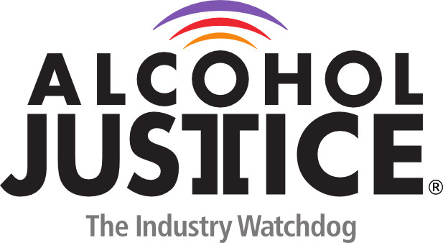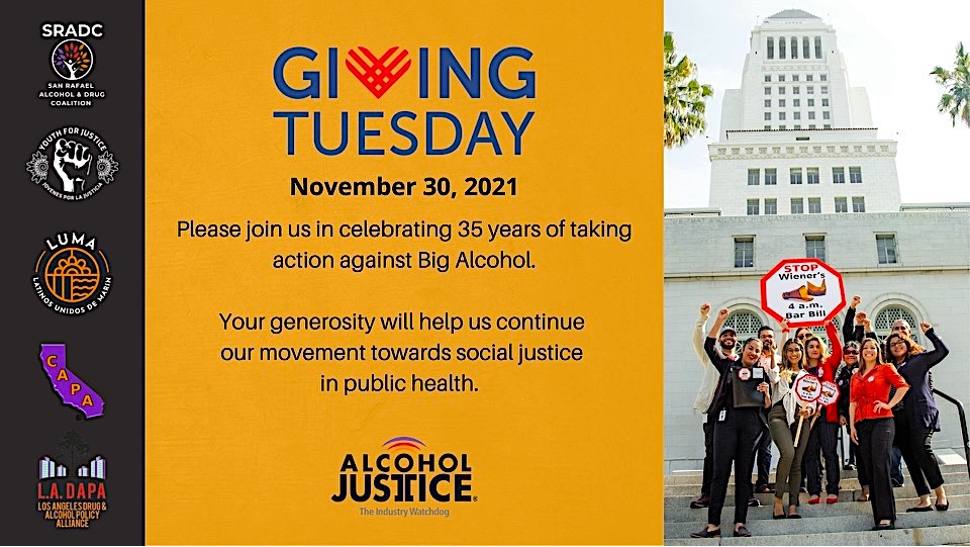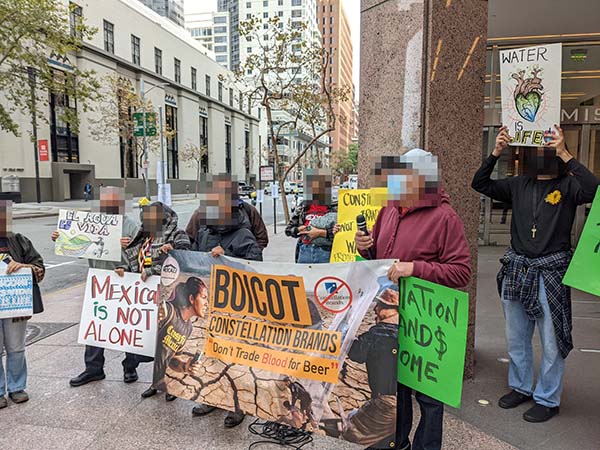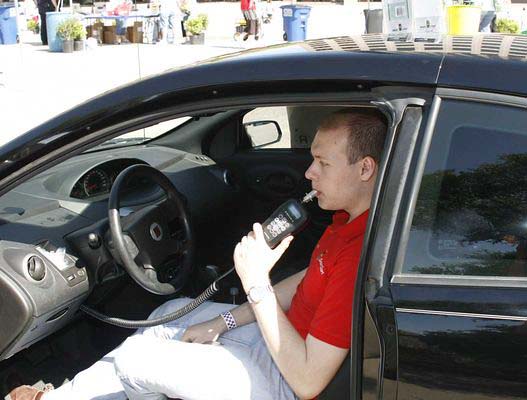Blog
#GivingTuesday 2021: Join the New Face of Alcohol Justice
- Details
- Created: Monday, November 29 2021 21:36

#GivingTuesday—the global day of giving—is here!
November 29, 2021
Dear Friends and Allies,
I'm Cruz Avila, the new Executive Director at Alcohol Justice. I've only been part of the Alcohol Justice work family since September of this year. But the organization has been working nonstop for 35 years, taking action against a rapacious industry that preys upon the disadvantaged, the marginalized, and those too young to see beyond the seductive marketing of truly dangerous products.
I am honored and blessed to join these efforts to reign-in Big Alcohol by taking decisive actions that place the health and safety of our vulnerable communities above industry profits.

On November 30, 2021, we ask for your help in supporting this important work. Contributions on #GivingTuesday launch a season of giving that will help support our efforts in the new year. Please consider joining us by:
1) Making a charitable gift on November 30th through the Alcohol Justice Donation Page
2) Learning more about Alcohol Justice campaigns and projects
• California Alcohol Policy Alliance (CAPA)
• Youth for Justice
• .05 Saves Lives
• Los Angeles Drug and Alcohol Policy Alliance (LADAPA)
• Free Our Sports
• Proyecto Latino TAM
• Native Americans Take Action
3) Signing-up for Alcohol Justice eNews and Action Alerts
4) Following and friending Alcohol Justice on our social media platforms
• Facebook - @AlcoholWatchdog
• Twitter - @AlcoholJustice
• Instagram – @alcohol_justice
• YouTube - @AlcoholJustice
I'm deeply grateful to be here and for your interest and generosity. By joining with us on #GivingTuesday, we will move forward together to hold Big Alcohol accountable for damaging public health and diminishing social justice.
From my work family and my personal family to yours, best wishes for peaceful holidays and a kinder, more equitable new year,

Cruz Avila
Executive Director
Alcohol Justice
VEA una mensaje especial de Cruz Avila, Directora Ejecutiva de Alcohol Justice.
WATCH a special message from Alcohol Justice Executive Director Cruz Avila.
Thirst for Justice: Mexican Communities Fight Big Alcohol's Water Takeovers
- Details
- Created: Wednesday, November 24 2021 17:55
UPDATE 11/17: Charges against the Mexicali Resiste activists were dismissed again. However, the Baja California government has not cleared them of all charges, and they could be again brought to court. Alcohol Justice continues monitoring this situation and similar ongoing struggles of indigenous and local communities in northern Mexico to end Big Alcohol's water extraction practices.
 On November 9th, Mexicali Resiste led dozens of activists, including representatives from Alcohol Justice, in a march on alcohol giant Constellation Brands to save three compatriots from dubious charges filed in Mexican court. These charges stem from Mexicali Resiste’s work four years ago to prevent Constellation, a U.S.-based corporation with offices in San Francisco, from acquiring exclusive water rights in the drought-stricken Mexicali Valley. This trial is just the latest salvo in an ongoing struggle against Big Alcohol’s takeovers of dwindling aquifers, a struggle that already has a body count. The trial is currently scheduled for the 16th of November.
On November 9th, Mexicali Resiste led dozens of activists, including representatives from Alcohol Justice, in a march on alcohol giant Constellation Brands to save three compatriots from dubious charges filed in Mexican court. These charges stem from Mexicali Resiste’s work four years ago to prevent Constellation, a U.S.-based corporation with offices in San Francisco, from acquiring exclusive water rights in the drought-stricken Mexicali Valley. This trial is just the latest salvo in an ongoing struggle against Big Alcohol’s takeovers of dwindling aquifers, a struggle that already has a body count. The trial is currently scheduled for the 16th of November.
“We can’t pretend that alcohol harm is just a physical thing that happens to drinkers,” said Cruz Avila, Executive Director of Alcohol Justice. “When Big Alcohol gets involved, it becomes economic harm. Political harm. It’s another incarnation of the oppression and exploitation that has cast a long shadow over the US and its neighbors.”
The San Francisco march was held to call for a boycott of Constellation and demand the company use its outsize influence—it is currently in negotiations with Mexican President Andres Manuel Lopez Obrador’s administration to open a new factory elsewhere in Mexico—to get the charges against Mexicali water protestors dropped. The group, which brought together both Mexico- and US-based organizations, peacefully occupied the sidewalk in front of the 101 Mission St. building where Constellation is housed, letting the affected members have their voices heard.
“We ask Constellations Brands to stop their plans to build gigantic breweries in water starved regions,” said Brenda Villanueva, Program Director at Pueblo y Salud. “This precious natural resource would best be used by the people for drinking and growing food instead of making more alcoholic beverages that are saturating and harming our youth and other members of our community.”
In 2015, the governor of Baja California awarded Constellation Brands rights to draw from the aquifer in Mexicali in service of a new factory. Details of the contract were shrouded behind confidentiality clauses, but the plant was expected to produce over 4 million bottles of beer and experts estimated it would have consumed as much as 25% of the available water reserves.
“We denounce the criminalization of the Mexicali Resiste Activists for choosing to protect the most sacred element for survival and a dignified quality of life – WATER,” said Mayra Jiménez, Advocacy Manager at Alcohol Justice. “We denounce Constellation Brands for commodifying water in a region that is experiencing severe water shortage. This is an environmental catastrophe.”
Local outrage peaked in 2017, when over 12,000 residents of Mexicali took to the streets, including the members of Mexicali Resiste who now stand trial. Following the protests, they were charged with “dispossession of state buildings” and “deprivation of liberty of the police.” Investigators subsequently cleared them of the charges, but this year, as Constellation began seeking a new location for the plant, the congress of Baja California suddenly decided to overrule the police decision and refile the charges.
The stakes are high, both for the protestors themselves and for impacted communities along the U.S.-Mexico border. For the members of Mexicali Resiste, they are being confronted with charges that the Mexican government deemed important enough to justify detention during the trial, which may last several years. For indigenous and community groups fighting water monopolization in Mexico, it adds state sanctions to existing efforts to chill resistance.
“The objectives are to instill fear in those who have not yet become protestors,” stated a Mexicali Resiste member, one of the three scheduled to be tried on Tuesday, in a statement posted to YouTube.
“Through nepotism and corruption, they let these companies come into our territory and let them try and privatize and take our water and now that we are defending our water, they try to criminalize us,” said Lluvia Ania of Mexicali Resiste. “We want to tell the Mexican government and we want to tell Mexican President Andres Manuel Lopez Obrador that we see what you are doing, we see what your party is doing. We are not dumb. We are not ignorant. We see the continued repression of Activists who are defending life, who are defending water, defending territory, who are defending the future of our babies, of our children."
"What will this world look like without water?" she continued. "We are here to continue to defend it and we want to stay alert and call out those governments who are participating in this! They came together a few days ago [at the UN Climate Change Conference, aka COP 26] to talk about global warming and climate change, but did they mention how they are participating in this, how these companies are actively participating in the contamination, in the stealing of resources for big companies? Constellation Brands has had several cities in Mexico where they have created deserts out of it [by] extracting water. We will continue fighting, we will continue bringing awareness to this situation, not just in Mexico but all of Turtle Island and all of Abya Yala.”
That chilling effect on protest is already present, driven by violence. Óscar Eyraud Adams, a member of the Kumiai people of Baja California and a resident of Tecate (a border city west of Mexicali), fought the diversion of water supplies away from local farmers to the Heineken brewery in that city. He was assassinated on the street in September 2020.
The Yaqui people of neighboring Sonora state have had similar experiences, with multiple water rights activists being murdered in or near Ciudad Obregón. Now Constellation Brands is seeking to expand its Ciudad Obregón facility—and therefore its draw from the water supplies—with those activists’ blood still fresh on the streets. With the reopened Mexicali Resiste trial, Mexican activists are being told in no uncertain terms they will not find protection from the government.
“Choosing to criminalize fighting for human rights is a crime against the people,” said Jiménez. “Government officials that condone this degree of corporate extraction are complicit in crimes against humanity on both sides of the border. We STAND UP and FIGHT for JUSTICE because we are all Mexicali Resiste.”
As crushing droughts cripple the West of both the U.S. and Mexico, water-intensive industries like industrial-scale brewing take on a new and more sinister cast. The Mexicali Valley aquifer is recharged in no small part by the waters of the Colorado River, which have been largely claimed by states in the U.S. long before the flows reach the border. According to researchers, the aquifer was overdrawn by 456 million cubic meters—enough water to fill 50 Levis Stadiums—in 2015, an overdraft that has undoubtedly increased during the drought.
As water tables drop, the water that goes into beer becomes an extracted, semi- or even unrenewable resource, much like oil, minerals, coal, or lumber. In the case of Constellation, which thanks to antitrust action has the rights to sell Corona, Pacifico, and Modelo in the United States but not in Mexico, this is classic instance of resource exploitation—Mexican water resources are extracted by U.S. companies and shipped back over the border.
Yet water still stands alone among these resources. It is the only one that the human body requires to survive. The reduction or diversion of water supplies, therefore, forms an existential threat everywhere it occurs, and can devastate communities while sparking civil unrest.
“You cannot ignore what this means for the future of both countries,” said Avila. “Every country, even. Justice for the Mexicali Resiste members, safety for the residents of Mexican border states, accountability for Big Alcohol, and access to water are not separate issues. They are different faces of one issue, and it effects everyone in the west.”
Photo by Alcohol Justice.
Opinion: Build Back Better, Drive Drunk Less?
- Details
- Created: Wednesday, November 24 2021 17:46
by Carson Benowitz-Fredericks, MSPH
Research Director, Alcohol Justice Will your car take your keys away? Buried in the Biden administration's wide-reaching infrastructure and social safety net bill, a small provision calls upon the National Highway Trafffic Safety Administration (NHTSA) to look into methods for cars to automatically curb dangerous driving. It does not specify what technologies will be employed, but does call for "passive monitoring" of driver performance to, presumably, safely cease operation of the car in circumstances where the driver may not be capable of driving. Once a technology or methodology is identified, manufacturers would have 24 months to begin installing it in all cars.
Will your car take your keys away? Buried in the Biden administration's wide-reaching infrastructure and social safety net bill, a small provision calls upon the National Highway Trafffic Safety Administration (NHTSA) to look into methods for cars to automatically curb dangerous driving. It does not specify what technologies will be employed, but does call for "passive monitoring" of driver performance to, presumably, safely cease operation of the car in circumstances where the driver may not be capable of driving. Once a technology or methodology is identified, manufacturers would have 24 months to begin installing it in all cars.
It is an ambitious call for safer roads. But is it the answer to preventing deaths and injuries from drivers who have been drinking?
It very likely would help. Ignition interlock devices, which detect blood alcohol content (BAC) in a driver's breath and prevent the car from starting if a driver has been drinking, are commonly employed DUI prevention devices. But they are almost always only installed when mandated by court order, and even then are often waived because of high cost. Moreover, they require regular recalibration to operate effectively. A passive system would not check for BAC, instead presumably matching driver reactions or behaviors to those displayed by the typical dangerously intoxicated driver. If reliable, the Insurance Institute for Highway Safety estimates passive monitoring would save 9,000 lives a year.
The problem is, it may be beatable. Delayed onset of alcohol, learned operation or behavior, or extra concentration by the driver may in fact steer the vehicle accurately until it is, for instance, on the freeway. At that point, suddenly interrupting the operation of the car may be dangerous in and of itself. Moreover, these devices would only be in new cars. The same economic factors that make ignition interlocks unfeasible for many would create a period of a decade or more before onboard incapacitated driving controls are in the majority of the cars most people can afford.
More broadly, to assume that onboard algorithms are, themselves, sufficient or optimal to ensure safe drivers assumes that intoxicated drivers are isolated problems. People who drink dangerously then get behind the wheel are going to specific places to drink. They are drinking products made by specific companies, who benefit economically. And they are driving because it seems like the best way to get to the places where they drink.
Time and time again, Alcohol Justice has gone into hearings in Sacramento and listened to legislators extoll the benefits of selling more alcohol whilie minimizing its consequences. "Alcohol sales are an economic boon, alcohol is fun, any mention that of the harms it cause are just empty moralizing, there's nothing we can do about drunk driving anyway." The automated DUI prevention idea plays into this same bloodless rhetoric--alcohol-involved wrecks are just the individual's fault. If we can fix people, then alcohol will not have any more harms. It plays hand-in-hand with the inadequate or deliberately self-defeating "enjoy responsibly" campaigns favored by Big Alcohol. Which in turn allows them, and their water-carriers in government, to dump any responsibility for alcohol harm on the people harmed.
This is not to say we should reject built-in protections against driving while intoxicated. It is to say we need to get louder still--it is time for Big Alcohol to own up to the deaths and injuries it causes. It is time for legislators to understand that their constituents suffer costs not paid for by bar receipts. It is time to embrace public transit, reject endless cycles of alcohol tax cuts, advance policies that promote intentionality in drinking, and confront alcohol harm as a community. A person in a car watched over by a computer is alone. A person moving through a healthier and more humane world is part of something greater.
Image by VCU Capital News Service. Used under Creative Commons license.
More Articles ...
Subcategories
Help us hold Big Alcohol accountable for the harm its products cause.
| GET ACTION ALERTS AND eNEWS |
STAY CONNECTED    |
CONTACT US 24 Belvedere St. San Rafael, CA 94901 415-456-5692 |
SUPPORT US Terms of Service & Privacy Policy |


